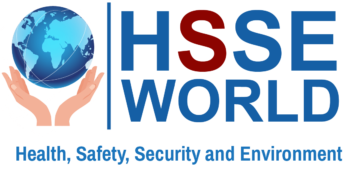Whistleblower Policy and it’s Importance to your safety
5 min readThere are many different elements that go into creating a strong safety culture at work, and every organization approaches it in a different way. But there’s one thing that every company should have, no matter the size or industry: a whistleblower policy.
What Is a Whistleblower Policy?
A whistleblower policy is a formal, written policy that guarantees the protection of any individual who reports activities that may be illegal, unsafe, unethical, or dishonest.

Whistleblower policies serve two main purposes:
- Prevent retaliation, including (but not limited to) termination of employment, poor work assignments, shunning by coworkers, and threats of harm
- Provide confidentiality and protect the whistleblower’s identity, where possible
Having a policy in place demonstrates an at least rhetorical commitment to creating an open and honest environment and encourages employees to speak up about concerns they have.
Your company may have a whistleblower policy even if it doesn’t refer to it by that name. Since the term “whistleblowing” can have negative connotations, some companies implement a program to protect workers who are “speaking up” or “raising concerns.” These are simply whistlblower programs under different names.
Whistleblower Policies and Safety Culture Are Intertwined
You can have a whistleblower policy without having a strong and positive safety culture, and vice versa. Each can exist without the other – but that doesn’t mean they aren’t complimentary.
A workplace with a strong safety culture will have open-door communication and employees who know they can voice their concerns without fear. It’s about proactively addressing health and safety concerns and recognizing that health and safety is everyone’s responsibility. An organization with a strong safety culture understands that the more issues that are brought to light, the easier it is to identify patterns and take preventative action to mitigate risks. (See Enhancing performance health-and-safety-culture to learn more.)
This raises the following question: if you have such a great culture of safety and employees feel comfortable speaking up, why do you need to formalize a policy about it? According to Janet Candido, principal at HR firm Candido Consulting Group, “For those organizations that are serious about their values and have taken time to create their culture and business ethics, [a whistleblower policy is] the next logical step.” She believes that it shows that the organization is serious about ensuring that everyone behaves in accordance with its stated values and offers a way for employees to report something that contravenes them.
In other words, having a formal policy in place sends a message to the entire organization that poor or unsafe practices will not be tolerated. It also sends a strong message to those who wish to speak up; when employees can actually read a policy like this for themselves, they’re far more likely to feel confident that they will be supported and protected from losing their job or from retaliation.
An effective whistleblower policy can also help attract and retain good employees. It solidifies management’s support for and commitment to a culture of mutual trust, which is something many workers look for in their employers.
Finally, from a legal perspective, it’s just good business practice. When a whistleblower speaks up, it’s critical to have written policies and procedures that clearly define what whistleblowing is and what steps the organization must take to respond to efficiency and confidentiality. A written policy also ensures that workers understand their rights and obligations related to fair work.
The Elements of a Whistleblower Policy
All effective whistleblower policies have some key elements in common.
Management Support
This is perhaps the most important element – for both your whistleblower policy and your overall safety culture.
Management must be supportive and committed to encouraging employees to speak up if your whistleblower policy is to have any effect at all. If employees get the sense that management isn’t truly supportive of whistleblowers, they will do one of two things when they spot potential problems: stay silent or go to social media.
A Point Person
Your policy should identify an individual (by name and position) that employees can report their concerns to. You may also wish to designate an alternate person.
The policy should make clear how to get in touch with this person and whether there are specific procedures employees need to follow when speaking up.
Policy Scope
There should be clear guidelines about when speaking up will be addressed under the whistleblower policy and when it will be addressed in accordance with other workplace policies. It should provide a strong understanding of what is considered whistleblowing (e.g. safety concerns) and what is not (e.g. personal issues).
What Happens After the Whistle Is Blown
The policy should set out specific steps that will be taken when an employee raises concerns. It’s important to emphasize when action will be taken, too, since Public Concern at Work found that it takes an average of three to four reports before a company acts.
Training
Training should mainly cover three things:
- How to raise a concern
- How employees will be protected
- How the concern will be addressed
Training should empower employees to report when they feel it’s necessary and ensure they feel confident doing so without fear of retaliation.
OSHA’s Whistleblower Protection Program
You may know that OSHA has its own Whistleblower Protection Program, but it’s worth briefly reviewing it.
The program enforces the whistleblower provisions of more than 20 whistleblower statutes that protect employees who speak up about their concerns, ensuring employers cannot take adverse actions like:
- Firing or laying off
- Blacklisting
- Demoting
- Reducing pay or hours
- Denying overtime or promotion
- Disciplining
- Denying benefits
- Intimidation or harassment
Employees who feel that their employer retaliated against them for whistleblowing can file a complaint with OSHA. There are legal time limits (between 30 and 180 days, depending on the statute), so it’s important that employees report any retaliatory measures without delay.
Conclusion
A whistleblower program does more than just provide a way for employees to report concerns – though this is certainly a key function of it. It also serves to strengthen an organization’s safety culture, reinforcing the commitment to open and honest communication and setting out specific procedures that must be followed when unsafe, unethical, or illegal activities take place.



